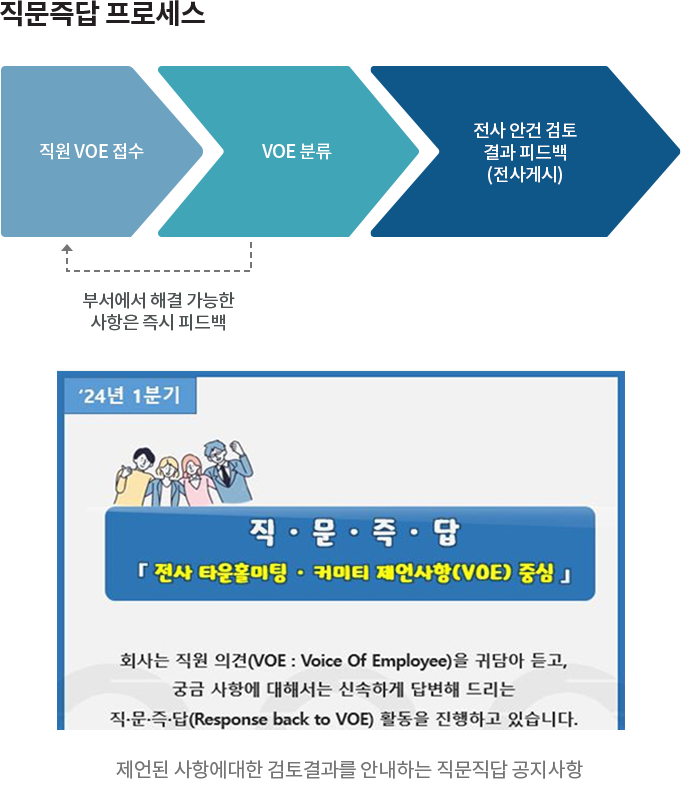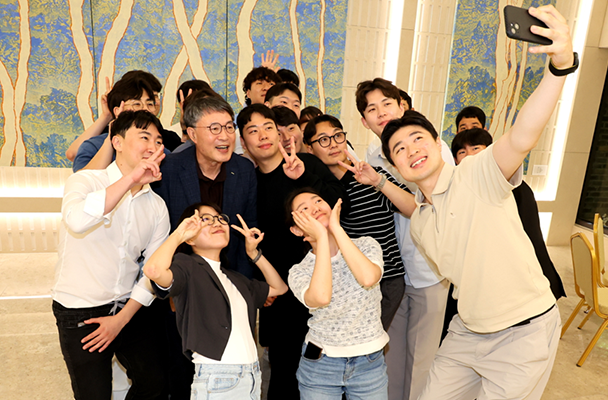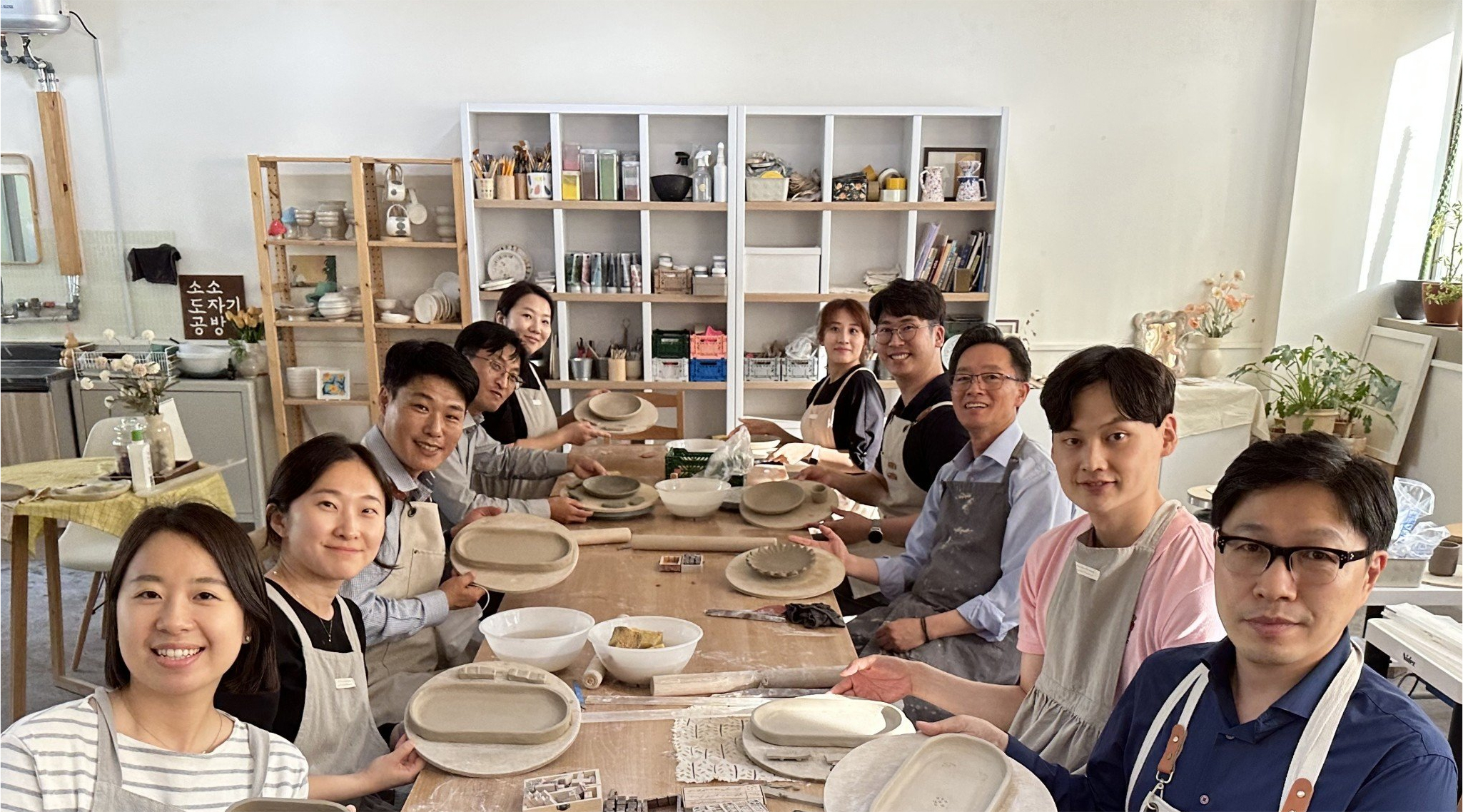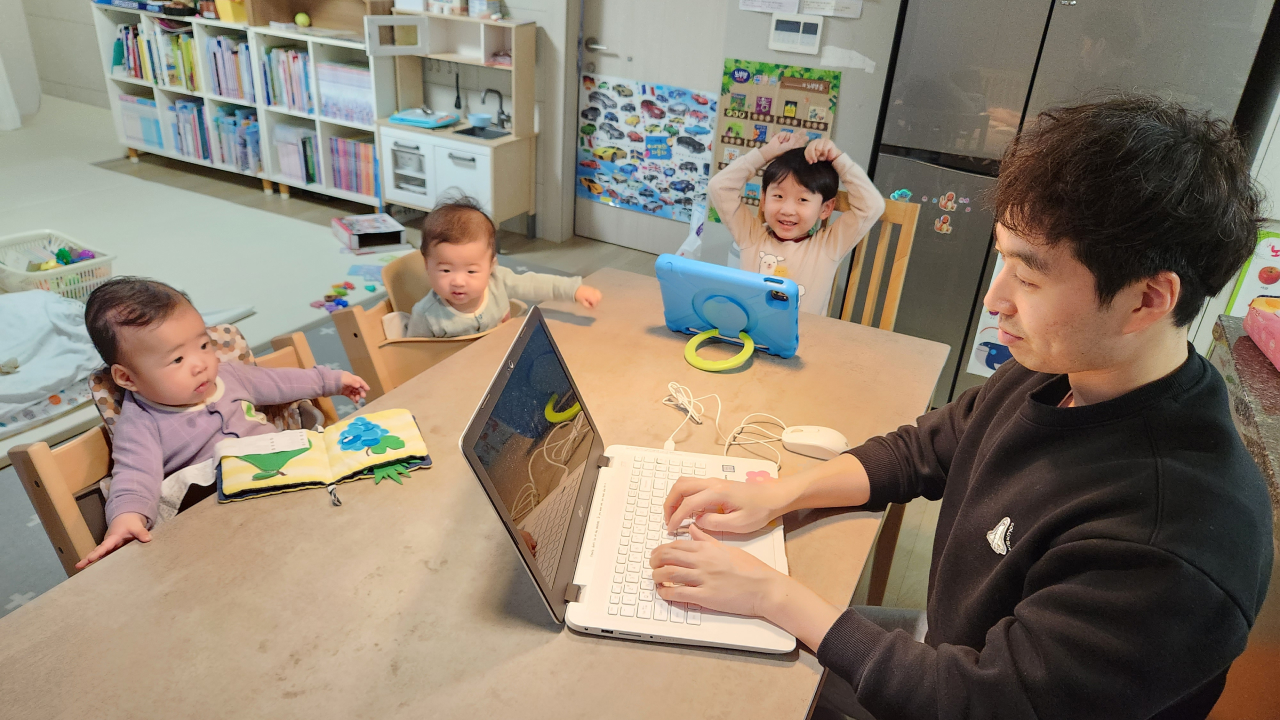Organizational Culture
Young Board
The Young Board enhances communication between top management and employees selected through internal recruitment, focusing on organizational culture, improvement of work methods, and on-site sentiment. It provides opportunities for capable junior employees to develop their leadership skills and management mindset. In 2024, a total of 24 Young Board members were selected to convey the real voices of the field to top management and to generate ideas for improving the organizational culture.
-
In 2024, a total of 24 Young Board members were selected to convey the real voices of the field to top management and to generate ideas for improving the organizational culture.
Direct Q&A (Prompt responses to employee inquiries)
In 2023, we regularly gather and swiftly respond to employee feedback, fostering two-way communication. Issues that can be resolved at the departmental level receive immediate feedback. For concerns affecting all employees, the relevant department reviews and provides feedback via company-wide postings.
-
Implementation Cycle: Once every two weeks
-
In 2023: Out of 1,862 submitted issues, 78 were addressed and posted company-wide, and 1,784 were addressed individually


Town Hall Meetings
Executives and affiliated employees engage in direct dialogue and communication to discuss organizational culture and current issues. To freely listen to employees’ opinions, anonymity-ensured systems such as Teams Chat and Metaverse are also used. In 2023, a total of 138 town hall meetings were held, with one meeting per quarter.
TongTong Committee, Millennial Committee
Considering conditions for generational change, direct communication is facilitated between management and the young generation (employees in their 20s and 30s). While Town hall meetings involve communication with a large number of employees, the TongTong and Millennial Committees focus on more in-depth discussions on organizational culture and issues with a smaller group (6-10 people). To foster a free communication atmosphere with a smaller group, environments such as workshop experiences are created to enable open dialogue with management.

Young Board members having a first half meeting in 2024 with the CEO of POSCO

Town hall meeting of the Health Planning Office
Flexible Working System
System Utilization
As of June 1, 2024| Category | System Details | Number of Employees Using | |
|---|---|---|---|
| On-site Workers | Selective Working Hours System | Employees can freely adjust their working hours within a four-week settlement period, averaging 52 hours per week (40 standard hours + 12 overtime hours) | 1,072 |
| Bi-Weekly Four-Day Workweek | Employees work an additional hour from Monday to Thursday over two weeks to maintain an average of 40 hours per week, allowing alternate Fridays off | 7,789 | |
| 8-5 workday | Employees work from 8 AM to 5 PM daily, allowing for an earlier departure compared to the usual 6 PM, ensuring an evening off | 1,725 | |
| Others | Flexible work, etc | 848 | |
| Shift Workers | - | 6,549 | |
Family-Friendly and Childbirth & Childcare Promotion Programs
To address South Korea’s population decline crisis and fulfill our corporate responsibility, we seriously listened to employees’ VOE and implemented programs to support childbirth and childcare. In 2023, we were selected as the Best Company for Childbirth and Childcare Promotion by the Ministry of Employment and Labor. Additionally, we operate family and childbirth-friendly programs, supporting employees to manage pregnancy, childbirth, and childcare without career interruption, from marriage to child education.
Personalized Support Programs for Different Life Stages
(* : According to the Labor Standards Act) Marriage
Marriage
-
Wedding congratulations bonus (2 million KRW), leave (7 days), flower wreath
Free use of the company wedding hall
Honeymoon allowance (2 million KRW)
 Pregnancy
Pregnancy
-
Infertility leave: 10 days per year (6 days paid, can be used in parts)
Infertility treatment costs: 1 million KRW per session (up to 10 million KRW)
Work from home or leave for infertility treatment
-
Shortened working hours program during pregnancy*: 6 hours of work per day
Work from home program during pregnancy: 4 to 8 hours of work per day (full basic salary paid)
 Childbirth
Childbirth
-
Childbirth incentive: 3 million KRW for the first child, 5 million KRW for the second child and beyond
First meeting gift for the baby: Gift certificate worth 500,000 KRW
Maternity leave*: 90 days (120 days for multiple births)
-
Paternity leave: 10 days for one child, 15 days for twin births, 20 days for triplet births (paid, can be used in parts)
Work from home to support spouse’s childbirth
 Childcare
Childcare
-
Parental leave: Up to 2 years (full period counted as service)
Operate 6 win-win joint workplace daycare centers in Pohang, Gwangyang, and Seoul
Reduced working hours during childcare period*, work from home
 Education
Education
-
Child scholarship program
Gift for child entering elementary school


